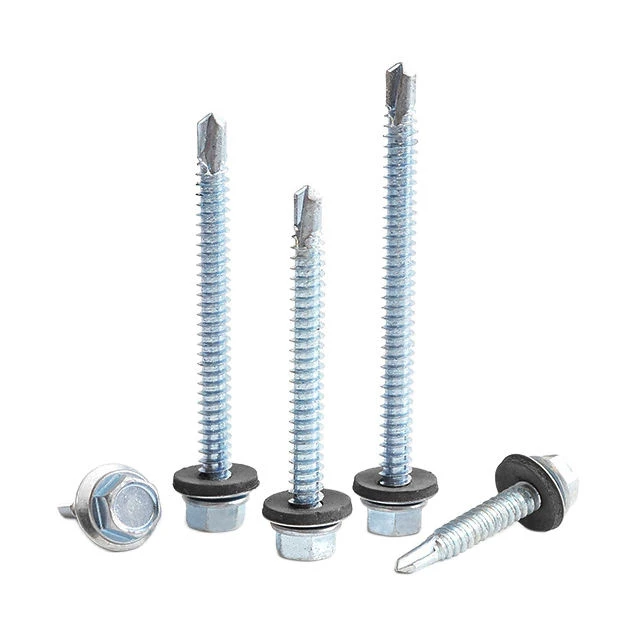

M16 Shear Bolts for Enhanced Structural Integrity and Load Distribution in Engineering Applications
Dec . 25, 2024 23:29 Back to list
M16 Shear Bolts for Enhanced Structural Integrity and Load Distribution in Engineering Applications
Understanding M16 Shear Bolts Key Features and Applications
In the world of engineering and construction, the choice of fasteners plays a critical role in the overall integrity and reliability of a structure. Among various types of fasteners available, shear bolts are particularly notable for their unique mechanical properties. This article delves into M16 shear bolts, discussing their specifications, applications, and advantages in different engineering contexts.
What are Shear Bolts?
Shear bolts are specially designed fasteners engineered to fail at a predetermined load. This characteristic is crucial in applications where the failure of a bolt can serve as a safety feature, preventing further damage to connected structures or components. When the shear load reaches a specific threshold, these bolts will shear off, allowing the joint to separate in a controlled manner instead of letting it buckle under stress.
The M16 shear bolt, specifically, refers to a bolt with a nominal diameter of 16 mm, which is a standard metric size. The designation M indicates that it is a metric bolt, while the number 16 signifies its diameter. M16 shear bolts are made from various materials, depending on the application—common materials include stainless steel, alloy steel, and other strong metal alloys that offer enhanced corrosion resistance and mechanical strength.
Key Features of M16 Shear Bolts
1. Load Capacity One of the primary considerations when selecting a shear bolt is its load capacity. M16 shear bolts are capable of withstanding significant tensile and shear loads. The exact load capacity will depend on factors such as material quality, heat treatment, and the presence of coatings.
2. Controlled Failure The engineered failure mechanism is a defining feature of shear bolts. M16 shear bolts are designed to break at specific shear loads, which is particularly important in applications involving safety-critical components, such as bridges, cranes, and machinery.
3. Corrosion Resistance Many M16 shear bolts are treated with protective coatings or are made from corrosion-resistant materials. This feature is vital for applications in harsh environments, such as marine settings or chemical plants, where exposure to corrosive agents can lead to premature failure.
m16 shear bolts

4. Ease of Installation and Maintenance M16 shear bolts typically feature standard threads, making them compatible with standard nuts and other fittings. This ease of installation reduces labor costs and time on site. Furthermore, when a shear bolt fails, it is often straightforward to replace, ensuring minimal downtime.
Applications of M16 Shear Bolts
M16 shear bolts find use in a variety of industries and applications, some of which include
1. Construction In buildings and other structures, shear bolts are used to connect load-bearing elements. Their controlled failure mechanism ensures that if overloaded, the joint will fail without compromising the structural integrity of the entire construction.
2. Automotive M16 shear bolts are used in vehicle assemblies where safety and performance are critical. For instance, they are commonly used in suspension systems and other crucial load-bearing components.
3. Infrastructure In public infrastructure such as bridges and tunnels, shear bolts provide important safety and stability. They are often used to connect different sections in a manner that ensures any potential overload is managed safely.
4. Machinery Many types of industrial machinery utilize shear bolts to secure mechanical components. In cases where machinery is subject to extreme forces, shear bolts prevent catastrophic failures by enabling controlled disassembly.
Conclusion
M16 shear bolts are vital components in various applications across multiple industries. Their unique design ensures that they can effectively manage shear loads while providing safety features essential for structural integrity. By understanding their characteristics, appropriate applications, and advantages, engineers and architects can make informed decisions when selecting fasteners for their projects. As safety and reliability remain paramount in construction and manufacturing, M16 shear bolts will continue to play a significant role in engineering practices.
Latest news
-
High-Strength Hot Dip Galvanized Bolts - Hebei Longze | Corrosion Resistance, Customization
NewsJul.30,2025
-
Hot Dip Galvanized Bolts-Hebei Longze|Corrosion Resistance&High Strength
NewsJul.30,2025
-
High-Strength Hot-Dip Galvanized Bolts-Hebei Longze|Corrosion Resistance&High Strength
NewsJul.30,2025
-
Hot Dip Galvanized Bolts-Hebei Longze|Corrosion Resistance&High Strength
NewsJul.30,2025
-
Hot Dip Galvanized Bolts - Hebei Longze | Corrosion Resistance, High Strength
NewsJul.30,2025
-
High-Strength Hot Dip Galvanized Bolts-Hebei Longze|Corrosion Resistance, Grade 8.8
NewsJul.30,2025

